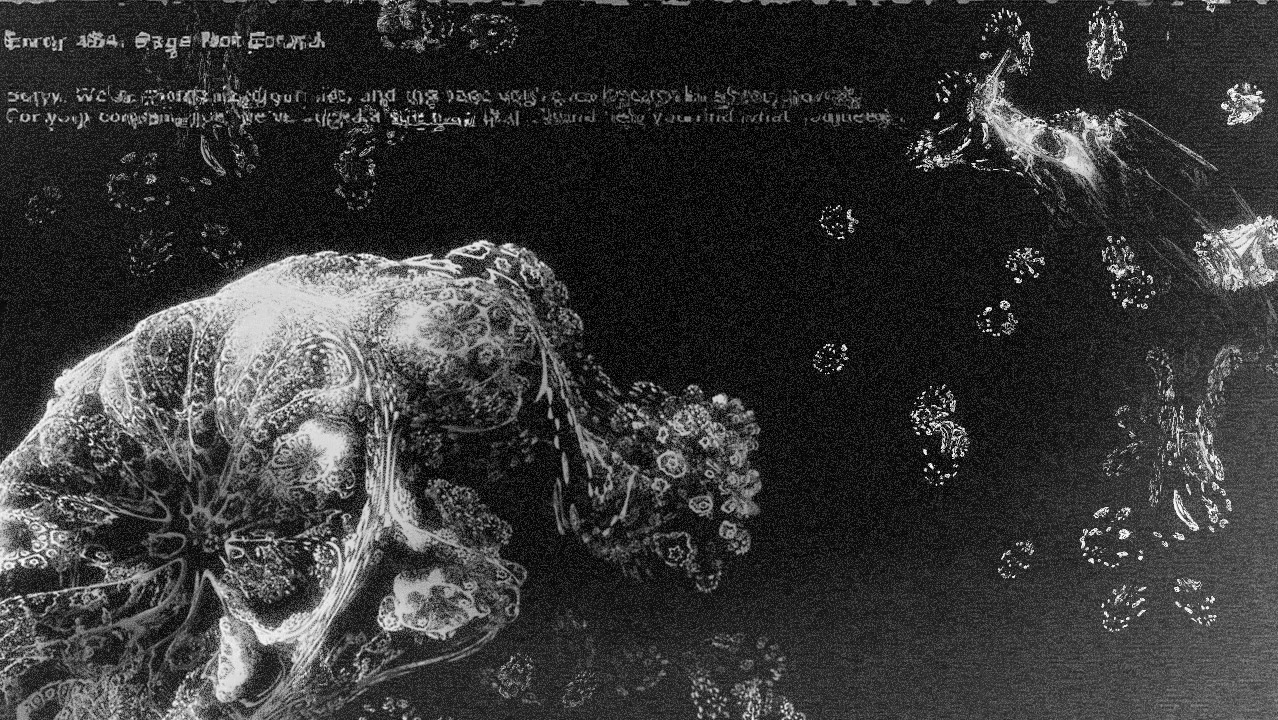Marangoni is Brazilian born, London based artist and researcher. Her work Overflowing Gardens of Decay explores the decay of Internet and the digital ruins we leave behind. Marangoni will be working in our Digital Residence during May and June.
Mariana Marangoni’s work Overflowing Gardens of Decay uses a web crawler script to search for broken URLs, dead-end links, and other forms of internet entropy. It transforms broken websites to performative spaces where unavailable material is replaced with poetry and visual art.
Nokturno interviewed Mariana before the beginning of the residency.
What inspired you to this project?
– Decay and fragility are concepts that always end up embedded into my creative practice, as they resonate with me on a very personal level. Despite the relentlessness of entropy, its effects are generally hidden or shunned by a society fixated with unstoppable innovation. The same could be said of most communication technologies used on a daily basis, their obfuscated software policies and black-boxed devices that take agency and privacy away in exchange for said conveniency.
– Then, when crisis and failure take place, the abrupt disruption can often lead to collapse, as care and maintenance – for people, buildings, or machines – were never the priority. All this reflection encouraged me to further engage with Internet decay, combining experimental writing and critical media studies to explore the potentialities of digital ruins as an integral part of the online landscape (and its vast majority).
How would you describe your relationship to the digital world?
– It is certainly ambivalent, like a weird symbiosis. I dare to say that it might even be parasitic, but I would not be able to define which side I find myself in, as it constantly shifts and complicates further with each iteration, each browser session, each data collected, generated, and stored.
– The so-called digital world may seem an immaterial, almost ethereal zone completely separated from reality, but it is reliant on several geologic materials and massive physical infrastructures to operate, even if those are hidden or obfuscated. The increasing demand for new devices, polished functionalities, higher connection speed and hardware improvements creates this unsustainable loop that needs urgent reconfiguration.
– Consequently, even the dichotomy between ‘the digital’ and ‘the real’ is turning obsolete, as the effects on one another are now almost undistinguishable. In a sense, my own self and artistic practice cannot be detached from it anymore, for good or for bad.

What would you like to tell our readers about yourself?
– I am a Brazilian artist and researcher currently based in London. I hold a master’s degree in Interaction Design from the London College of Communication, and my recent work has been focused on critical explorations of the Internet crisis and the aesthetics of decay in digital media.
– My interdisciplinary practice takes many forms, from web-based experiments to sculptural installations, and even though text-based media has always been an important part of my personal expression and experimentation, it was only recently that I have got comfortable enough to bring it ‘outside’. I started coding in 2016 in a very corporate-led environment, soon discovering that I was a terrible fit for those spaces, which led me to reappropriate those technical skills to explore unusual and absurd coding practices that defy the standardized interactions between humans and machines.
More information about Mariana and her recent projects you’ll find on her website marianamarangoni.com.
Nokturno welcomes Mariana to our Digital Residence of 2021!
Our previous poet-in-digital-residence have created works of gamified poetry, sound poetry, video poetry, interactive, collaborative and generative poetry. More information on Nokturno’s Digital Residence you’ll find here.
Nokturno’s Digital residence is funded by Kone Foundation and the Ministry of Culture and Education with their subsidy for art and culture magazines.
(image from Overflowing Gardens of Decay by Mariana Marangoni)

